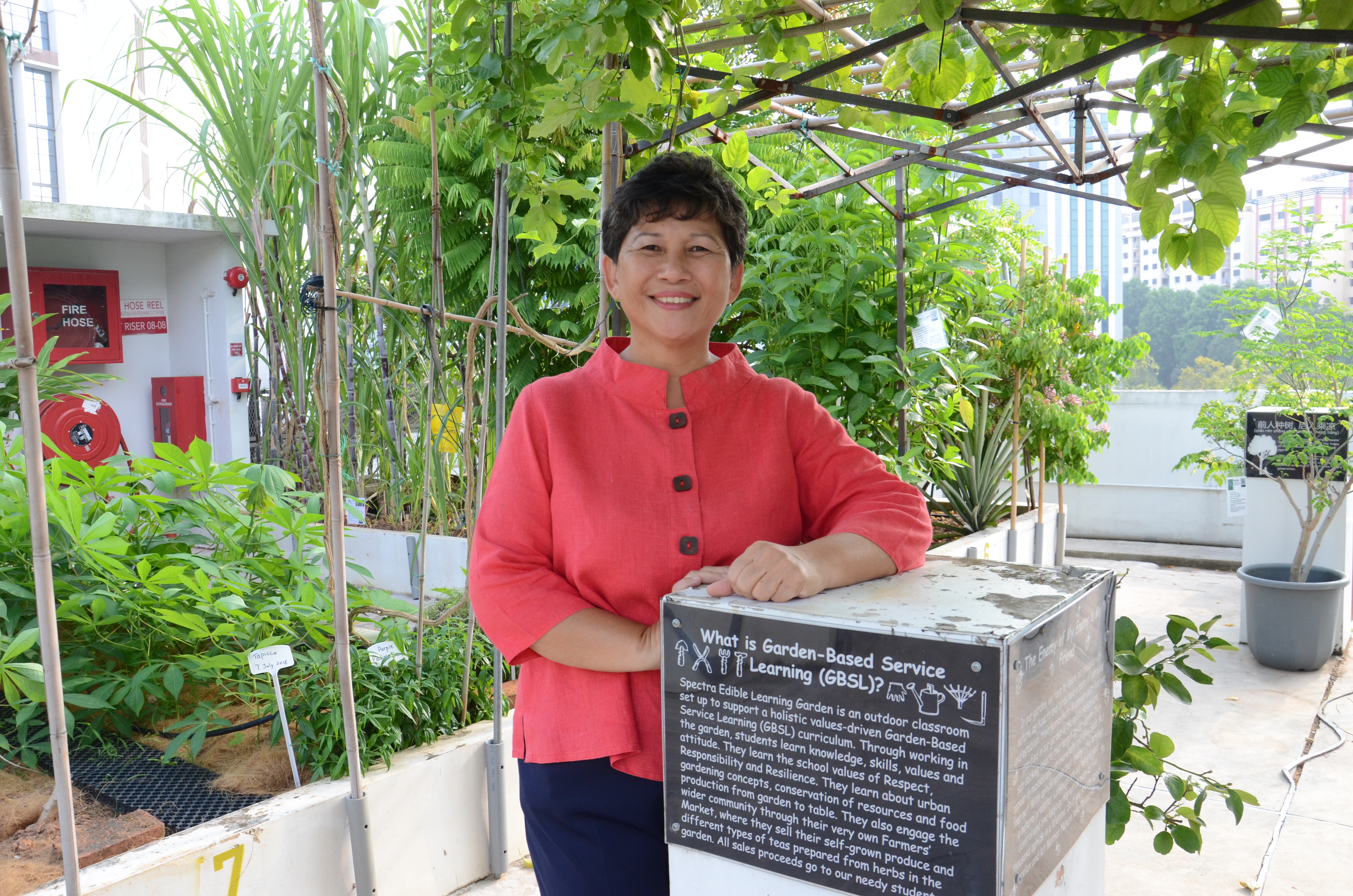Young Children’s Voices in Mathematical Problem Solving
Contributed by Dr Ho Siew Yin and Sng Wei Qin Abbie, from NTUC First Campus, for SingTeach Virtual […]
Read More
Malaysia-born Mrs Lyvenne Chong from Spectra Secondary School took 21 years to fulfil her childhood ambition of being a teacher. About to retire in 2 years’ time, she talks to SingTeach about her long and rewarding journey of not just being an educator, but a lifelong learner as well.

Lyvenne shares, “to be a teacher was my childhood ambition.” With a laugh, she says, “I remember very clearly – when I was in primary school, I would often role-play as a teacher at home and
pretend to give books to students.”
Back then in Malaysia, Lyvenne was well-known in her kampong (village) as a top student. When she was a Secondary 3 student, neighbors began to engage her as a tutor for their children, who
were in primary school.
Thus, this childhood ambition continued to be sustained, partly as a way of earning her own keep, and because she recognized her competencies as a teacher.
She went on to teach in tuition centres and her former school as a relief teacher. Such was her passion for teaching that she not only taught children in the day, but also adults who were learning
conversational English at night.
“I’m a teacher throughout the entire day,” she quips with a smile.
Lyvenne shares that she has never stopped pursuing her childhood ambition of being a teacher, whether in Malaysia or Singapore. Despite her persistence, her applications to be a teacher in both
countries were repeatedly turned down over the course of 21 years.
Disappointed but not discouraged, she constantly sought out relief teaching assignments in schools.
“When you can’t reach your goals, don’t give up,” says Lyvenne about her childhood ambition. “You must continue to learn, progress and seek alternatives. When there’s an opportunity, be quick to grab it.”
Finally, in 1997 at the age of 37 and with two young children, her determination was rewarded with the eventual acceptance of her seventh application as a teacher.
“When you can’t reach your goals, don’t give up – you must continue to learn, progress and seek alternatives. When there’s an opportunity, be quick to grab it.”
– Lyvenne Chong, on how this mindset led her to successfully applying for a position as an educator after 21 years
As with all vocations, challenges are aplenty and unavoidable. When asked about the kinds of challenges Lyvenne has faced since becoming an educator, she responds with a wry smile.
“I think the biggest challenge is dealing with students who are at-risk or come from dysfunctional families,” she shares. “These students are not motivated to learn or even come to school. Even if they do come, they seek attention by getting involved in disciplinary issues.”
To her, it is crucial to understand the reasons behind their disciplinary problems.
“A lot of times it’s not by choice,” Lyvenne says. She explains that at-risk students tend to have complicated family backgrounds and face complex issues which are difficult to resolve.
Lyvenne believes that to reach out to a child, it is important to build positive teacher-student relationships. One way to do this, she says, is to “follow-up and follow-through”. She spends time
with the students and their families even outside of school hours, and offers herself as a channel for them to confide in her.
From there, she does what she can to ensure the student turns up for school. She also has no qualms about providing one-on-one supplementary lessons to help the student pull through his
or her studies.
“While it is a challenge, I think that as teachers and educators, we don’t just teach the subject, we should also strive to make a difference to a child’s life – not just in class, but for the future,” affirms Lyvenne.
“I enjoy interacting with students,” Lyvenne shares. “When the kids are happy, I’m happy. I feel more motivated when they learn and respond.”
Of course, it is not always smooth-sailing. Lyvenne does experience moments of frustration when students are unresponsive.
“When I sense that the students are losing interest, I try to make the lessons more interactive and I try to bring in real-world examples,” she shares.
One perfect example of this is Spectra Secondary School’s Garden-based Service Learning (GBSL) Programme, which goes beyond textbooks to teach students Character and Citizenship Education
(CCE) among many other subjects.
“While it is a challenge, I think that as teachers and educators, we don’t just teach the subject, we should also strive to make a difference to a child’s life – not just in class, but for the future.”
– Lyvenne
After 20 years in the teaching profession, Lyvenne has some advice for aspiring and in-service educators: “Every cohort of students that crosses our path is different. We need to make an effort to understand the profile of each student,” she says.
“By understanding them and continuing to develop professionally, we are able to sharpen our tools and build our craft better.”